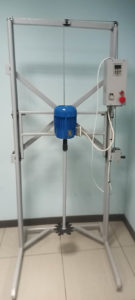 |
Liquid crystal polymers (also called aromatic copolyesters) have outstanding mechanical properties at both ambient and extreme temperatures. They are also highly resistant to many chemicals and so are used for many automotive under-bonnet and aerospace applications. A number of filled and reinforced grades are available and this material can be processed with very short cycle times.
|
Table 2.2 Adhesive shear strengths (ABS)
Notes: * Substrate failure |
|
Table 2.3 Adhesive shear strengths |
(LCP) |
|
|
Adhesive type |
Description |
Shear strength (N/mm2) |
|
Cyanoacrylate |
Standard ethyl |
5.2 |
|
Toughened |
3.5 |
|
|
Ethyl + primer |
2.8 |
|
|
Two-part acrylic |
MMA |
3.8 |
|
Polyolefin bonder |
3.1 |
|
|
Epoxy |
‘5-minute’ epoxy |
4.1 |
|
Standard epoxy |
6.9 |
|
|
Silicone |
Alkoxy silicone |
1.0 |
|
UV acrylic |
Visible light cure |
4.5 |
|
Notes: All shear strengths are given as guidelines only and may vary considerably depending on grade of plastic, fillers, surface finish, etc. Recycling information = thermoplastic & |
LCP is flame resistant and so is often used in the electrical industry for stator insulation and connectors, etc.
Surface roughening of LCP typically improves adhesion and this plastic can be bonded with most adhesives with epoxies generally giving the highest tensile shear strengths (Table 2.3).
 21 сентября, 2015
21 сентября, 2015  Pokraskin
Pokraskin  Опубликовано в рубрике
Опубликовано в рубрике 